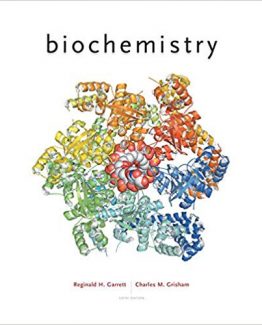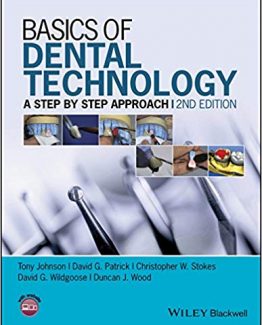Lost Childhoods: The Plight Of The Parentified Child by Gregory J. Jurkovic, ISBN-13: 978-0876308257
[PDF eBook eTextbook]
- Publisher: Routledge; 1st edition (May 8, 1997)
- Language: English
- 272 pages
- ISBN-10: 0876308256
- ISBN-13: 978-0876308257
Parentification – the assumption of responsibility for the welfare of family members by children and adolescents – is increasing as a result of various forces both inside and outside of the family. Evidence suggests that pathological parentification of children has serious consequences for them, and for succeeding generations, as do other forms of maltreatment. This work is an exploration of the forces at work in families with parentified children – and the treatment strategies that hold the promise of interrupting a cycle of destructive behaviour. The author begins by guiding the reader from conceptualization to possible causes and manifestations of parentification, facilitating a clear understanding of how and why this scenario is common. The second part of the book builds on this foundation to introduce methods of assesment, treatment, and prevention. This part of the text includes insights into the professional, ethical and personal challenges faced by therapists who themselves have a history of pathological parentification.
Table of Contents:
Cover Page
Title Page
Copyright Page
Contents
Acknowledgments
Dedication
Introduction
Parentification: An Overview
Theoretical Background
Clinical Picture
Historical Perspective
Media and Popular References
Need for Further Study
Part I Understanding
Chapter 1 Mapping the Territory
Parentification and Kindred Constructs
Delimiting the Construct
Overtness
Type of Role Assignments
Extent of Responsibility
Object of Caretaking
Age Appropriateness
Internalization
Family Boundaries
Social Legitimacy
Ethicality
From Destructive Parentification to Infantilization
Toward an Ecological-Ethical Perspective
Conceptual Foundations
An Ecological-Ethical Perspective
Conclusions
Chapter 2 Causation: An Integrative Framework
An Integrative Framework
Individual Development
Parents
Children
Proximal Settings
Family
Peers and School
Interrelation of Settings
Home-School
Parent-Peer
Distal Settings
Neighborhood
Employment
Social Services
Cultural Consistencies
Societal Attitudes
Social Legitimacy
Gender Roles
Ethical Context
Balance of Fairness
Entitlement
Conclusions
Chapter 3 Multilateral Consequences of Parentification
Parentified Children
Loss of Childhood, Parents, and Trust
Anger and Resentment
Stress
Guilt and Shame
Physical and Sexual Abuse
Peer Problems
School Difficulties
Disruption in Identity Development
Conflicts About Leaving Home
Occupational Concerns
Personality Dysfunction
Family of Origin
Siblings
Parents
Family of Procreation
Conclusions
Part II Treatment and Prevention
Chapter 4 Evaluating Childhood Parentification: The I-D-C Model
Stage 1: Identify
Stage 2: Describe
Overtness
Type
Extent
Object
Stage 3: Contextualize
Developmental-Psychological
Sociofamilial
Ethical
Consequential
Clinical Example
Instrumentation
Conclusions
Chapter 5 Treating Destructively Parentified Children and Their Families: Systemic and Ethical Perspectives
Jenny Revisited
General Orienting Perspectives
Multilevel Systemic Orientation
Multilateral Ethical Orientation
Therapeutic Tasks
Beginning Phase
Addressing the Parentification Process
Negotiating Emergent Issues
Middle Phase
Empowering Parentified Children
Helping Family Members Grieve Their Losses
Ending Phase
Facilitating the Parentified Child’s Socioemotional Growth
Conclusions
Chapter 6 Breaking the Deadlock: The Case of Jamie
Background
Intervention
Follow-Up
Discussion
Conclusions
Chapter 7 Parentified Children Grown-Up: Treating Destructive Parentification in Couples
Case Example: Carl and Shirley
Beginning Phase
Identifying Patterns of Destructive Parentification
Creating a Working Therapeutic System
Middle Phase
Balancing Give-and-Take
Negotiating Family-of-Origin Issues
Developing a More Secure Attachment
Resolving Sexual Problems
Addressing the Children’s Needs
Ending Phase
Promoting Trust
Facilitating Relational Choice
Conclusions
Chapter 8 Wounded Healer: From Parentified Child to Helping Professional
Maggie
Daniel
Consequences
Problems
Strengths
Implications
Person-of-the-Therapist
Training
Conclusions
Chapter 9 Preventing Destructive Parentification
Enlarging the Definition of Child Maltreatment
Ecological-Ethical Prevention Programming
Transforming Experiments
Home-Visitation Program
Children in the Middle
Research
Conclusions
Appendix A Constructs Related to the Parentification of Children
Individual and Family Psychodynamic Approaches
Family Systems Theory
Sociological and Anthropological Observations
Addiction Models
Developmental Perspectives
Appendix B Parentification Questionnaire
Scoring Key and Interpretation
References
Name Index
Subject Index
What makes us different?
• Instant Download
• Always Competitive Pricing
• 100% Privacy
• FREE Sample Available
• 24-7 LIVE Customer Support






Reviews
There are no reviews yet.